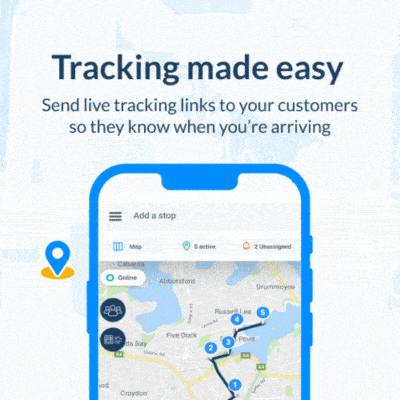The logistics sector contributes significantly to a country’s economy, forming a vital part of the transportation and trade sectors. However, with this comes a huge responsibility to protect the environment while building the economy.
The Australian Logistics Council predicts that the freight and logistics industry will account for more than 8% of the gross domestic product (GDP). The Bureau of Transportation Statistics says transportation contributed $1.7 trillion (6.7%) to the US economy in 2022.
Locate2u’s business journalist Cheryl Kahla gives an industry update on the state of sustainable logistics.
Sustainability trends in logistics
From regular strategies to optimizing delivery systems and transitioning to electronic vehicles (EVs) or hybrid vehicles, Kahla explains that there is a big push for sustainable packaging these days. “Personally, I’m really excited about what happens with drones and robotics.”
But why does it seem as if there is a bigger push from customers and more competition among companies for more sustainable efforts?
A recent report published by S&P Global indicates that global warming could negatively impact the world’s GDP. By 2050, more than 4% of the global GDP could be lost every year.
What should businesses focus on to avoid contributing to global warming?
The biggest sustainability trends in logistics in 2024 are:
- More transparency about sustainability efforts.
- Simplifying choices for customers.
- Rethinking retail return (reverse logistics).
One of the more obvious contributions is to convert fleets and create greener transportation.
Should companies convert fleets to EVs?
While many companies are converting fleets, which include vehicles and trucks, to electric or hybrid systems, there are charging concerns.
“Charging infrastructure is definitely still a concern, especially for long-haul logistics. Range anxiety is real, but battery technology is improving. So there’s definitely increased interest in hybrid vehicles, especially in areas where EV infrastructure is less developed,” explains Kahla.
There seems to be more interest in hybrid systems lately to help trucks who have to drive long distances to have a backup when there are no charging stations in sight.
Chinese manufacturer BYD is continuing to expand in Europe, and XPeng, will be launching new models next year.
According to the Global EV Outlook for 2024, 95% of 2023’s 14 million EV sales were in China, Europe, and the US.
This brings the “total number of EVs on the road to 40 million,” states the report. In Europe, new EV registrations spiked by nearly 3.2 million, which is an increase of 20% from 2022.
“As they [EV manufacturers] and others continue to innovate upstream, it could definitely accelerate adoption in the long run,” believes Kahla.
EV momentum varies by region, but ongoing improvements in battery technology will potentially accelerate adoption in the long term.
Sustainable packaing efforts
More customers are demanding recyclable packages before they purchase from a specific store. This could be driving a number of e-commerce companies to think out of the traditional box to lure customers.
Australians recycle only 18% of plastic packaging, creating a dire need for better packaging solutions.
“It looks like Amazon is leading the sector in this regard; they reached their sustainability goals seven years earlier than expected,” noticed Kahla.
Amazon has now removed plastic pillows from its packaging, realizing that it can, in fact, do without them without compromising the delivery experience.
Customers demand sustainability
A recent study found that one in four shoppers are willing to change retailers if their first choice does not offer sustainable delivery options. This consumer demand is forcing companies to rethink their packaging strategies.
In addition, 27% say they would pay extra for eco-friendly options, while 67% are interested in carbon offsetting their delivery emissions. While 42% say “no” to fast fashion, 53% say they’d be happy to wait longer for their food orders.
The question is whether there is enough education about what can be done to comply with sustainable standards in the logistics industry without breaking the bank.
“I actually don’t think just removing plastic packaging is enough,” says Kahla. “More needs to be done to educate consumers, not just by companies like Amazon, but also at a governmental level.”
NOW READ: Robotic food delivery: The next big thing in convenience
Photo credit: Canva
Share this article
About the author
Mia is a multi-award-winning journalist. She has more than 14 years of experience in mainstream media. She's covered many historic moments that happened in Africa and internationally. She has a strong focus on human interest stories, to bring her readers and viewers closer to the topics at hand.
Cheryl has contributed to various international publications, with a fervor for data and technology. She explores the intersection of emerging tech trends with logistics, focusing on how digital innovations are reshaping industries on a global scale. When she's not dissecting the latest developments in AI-driven innovation and digital solutions, Cheryl can be found gaming, kickboxing, or navigating the novel niches of consumer gadgetry.















